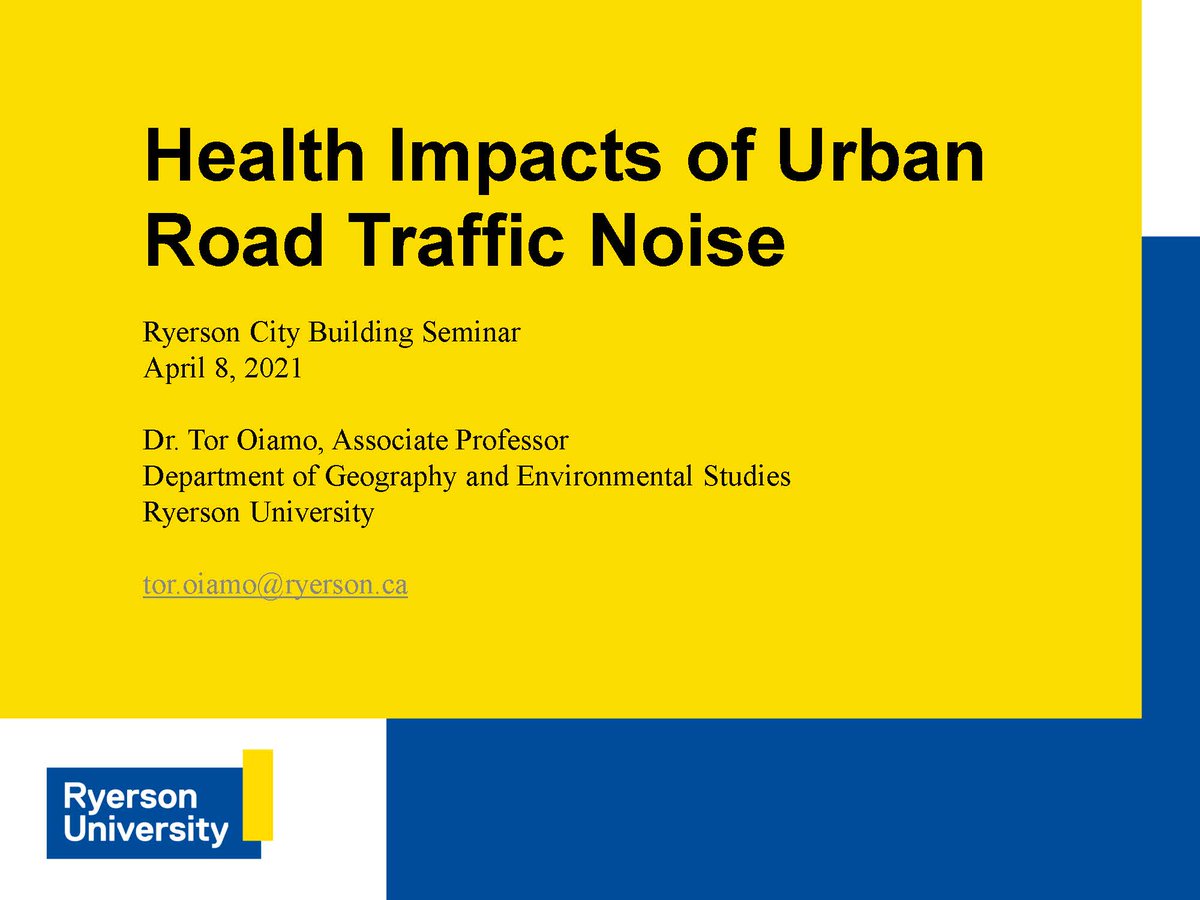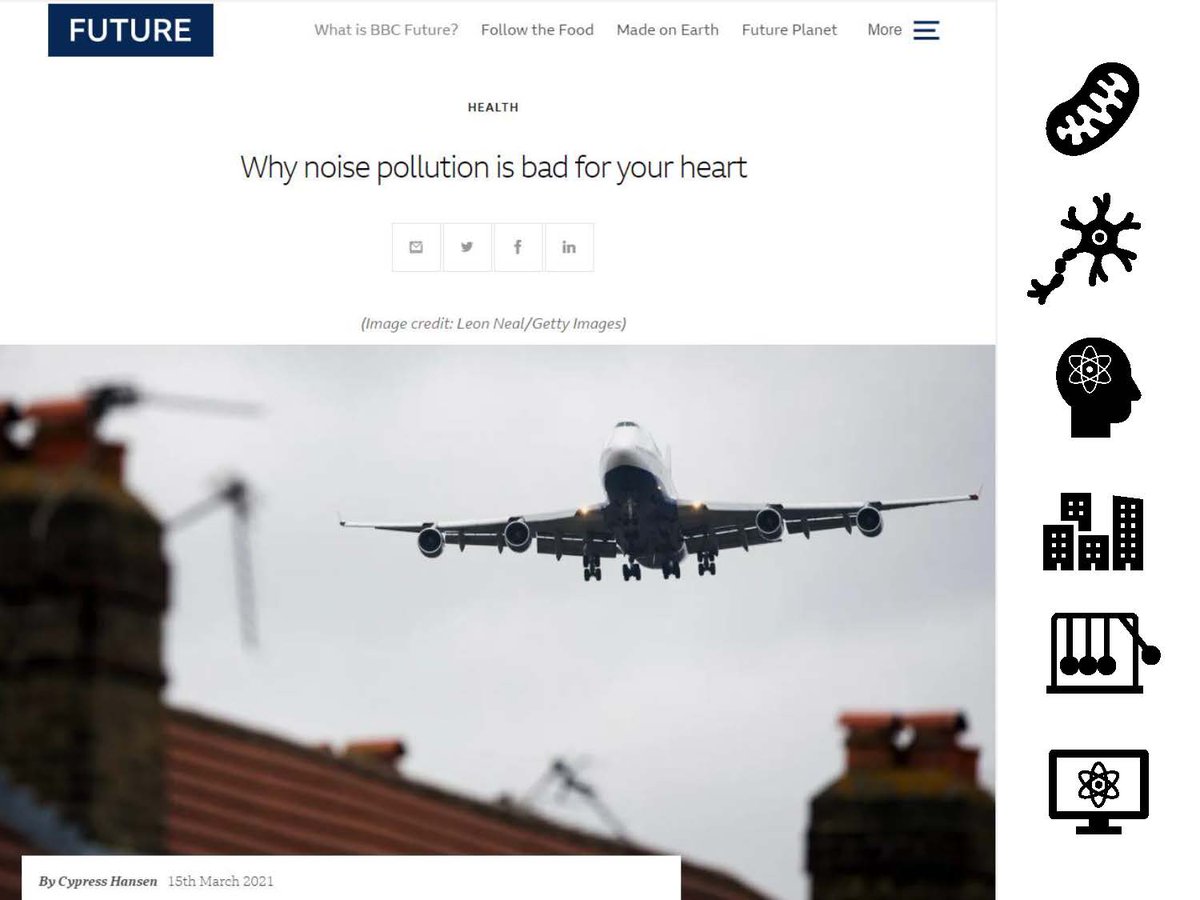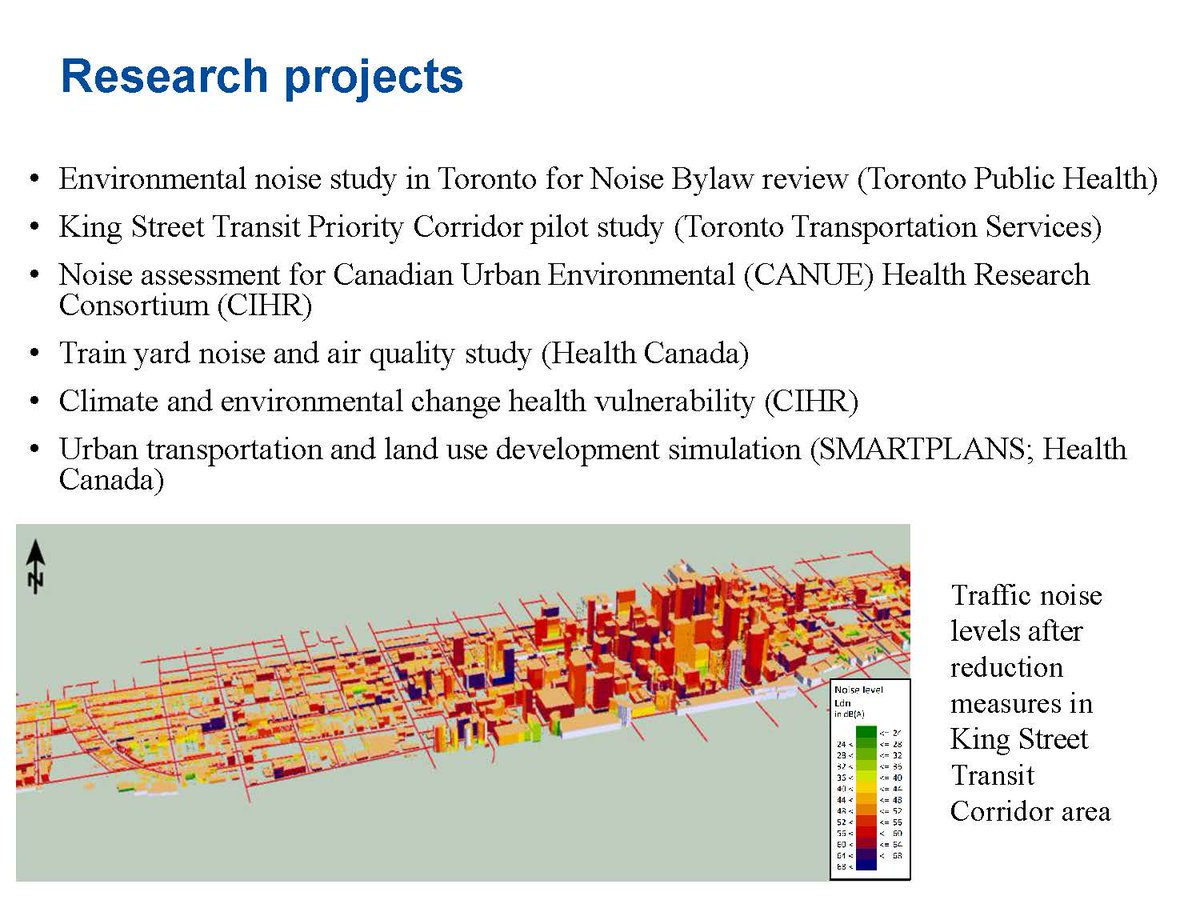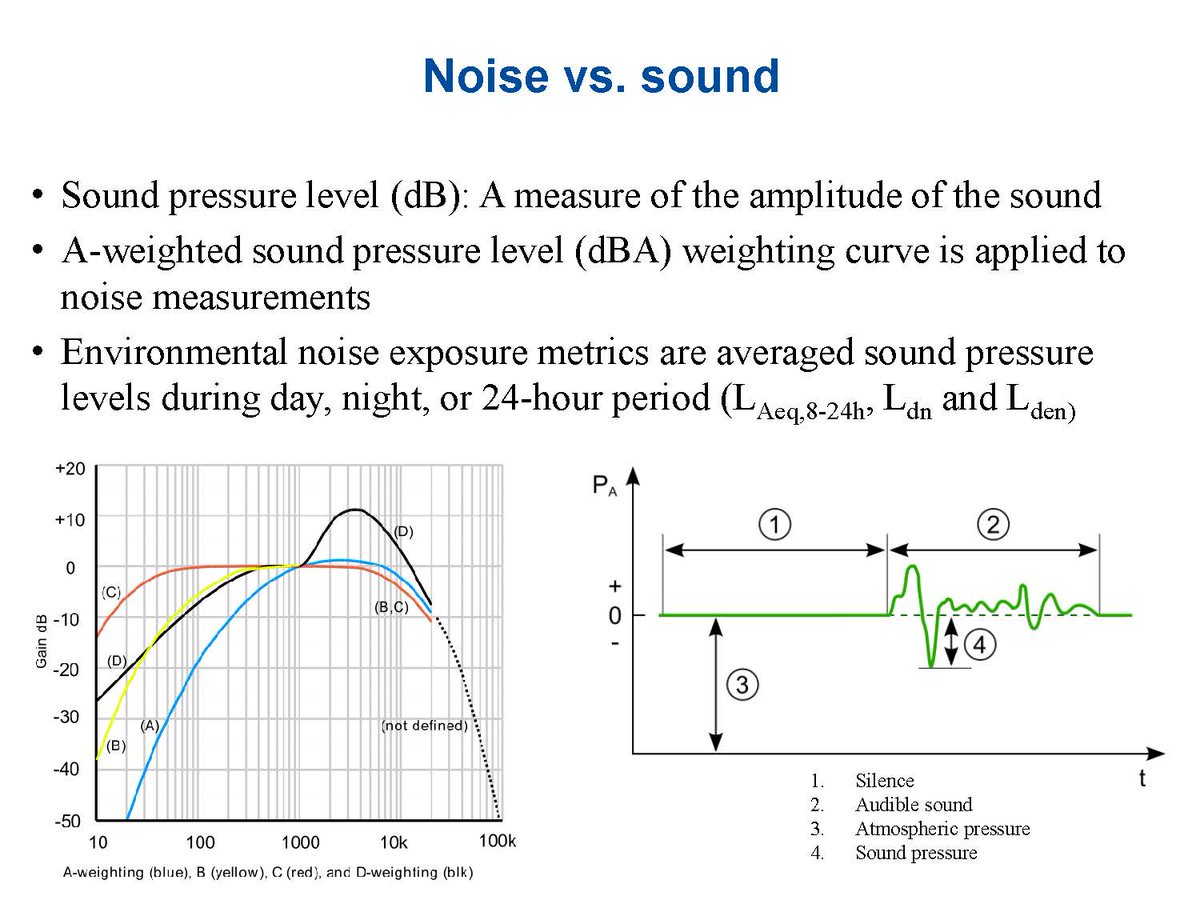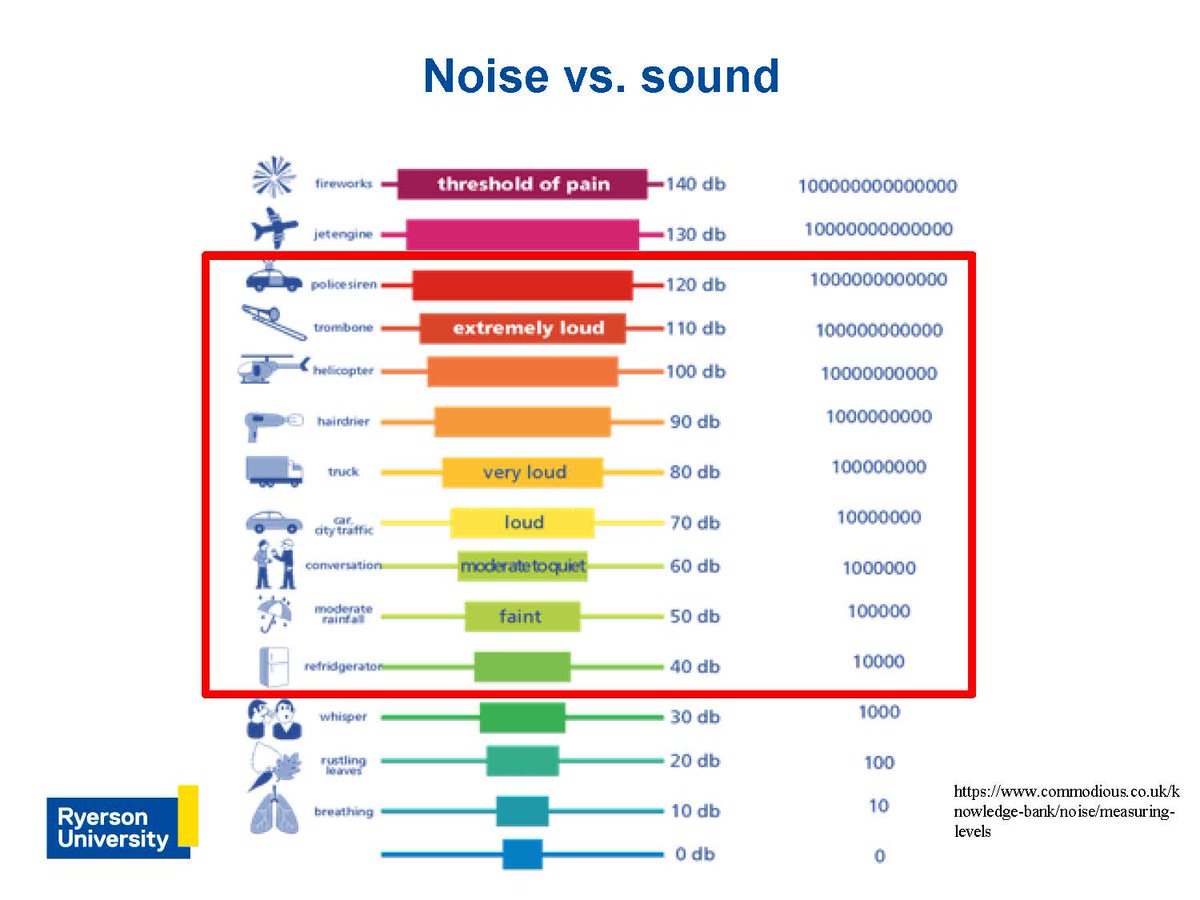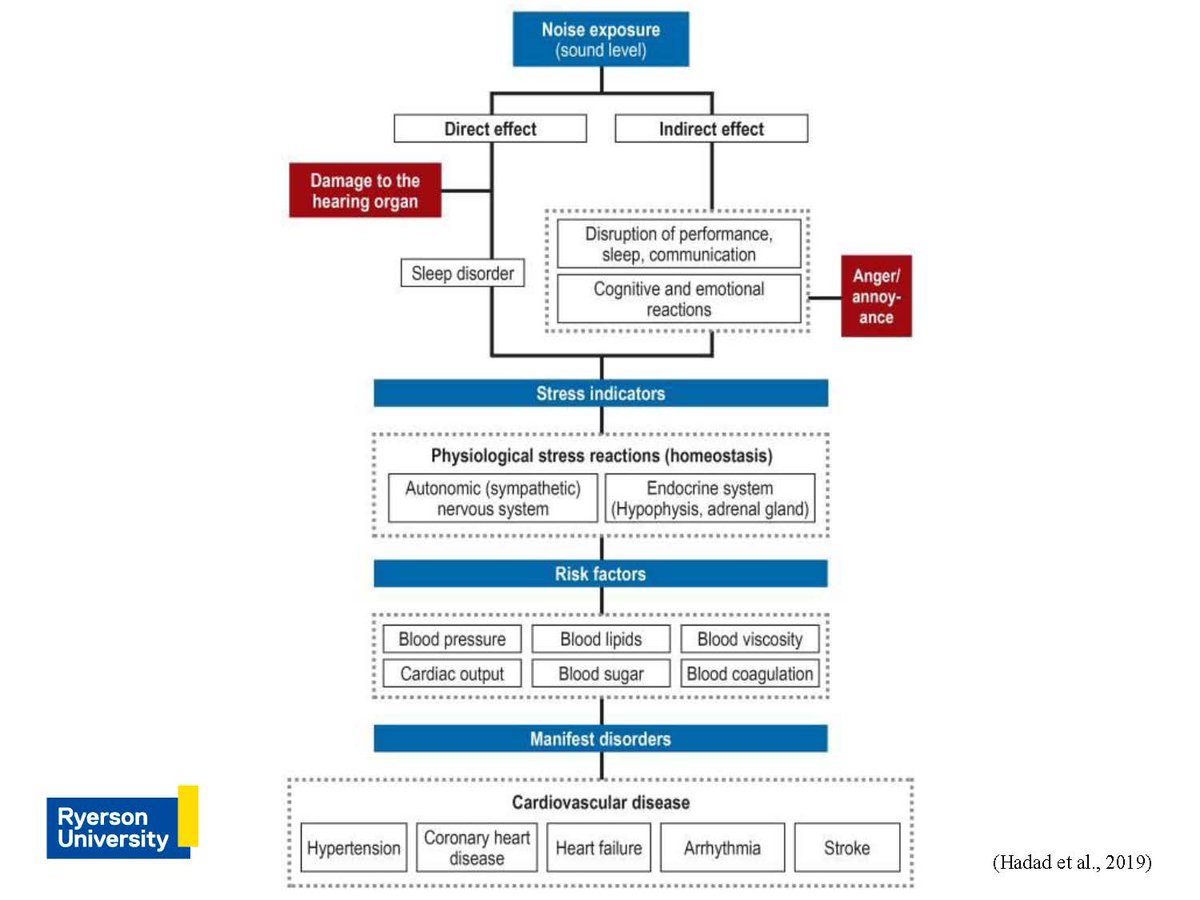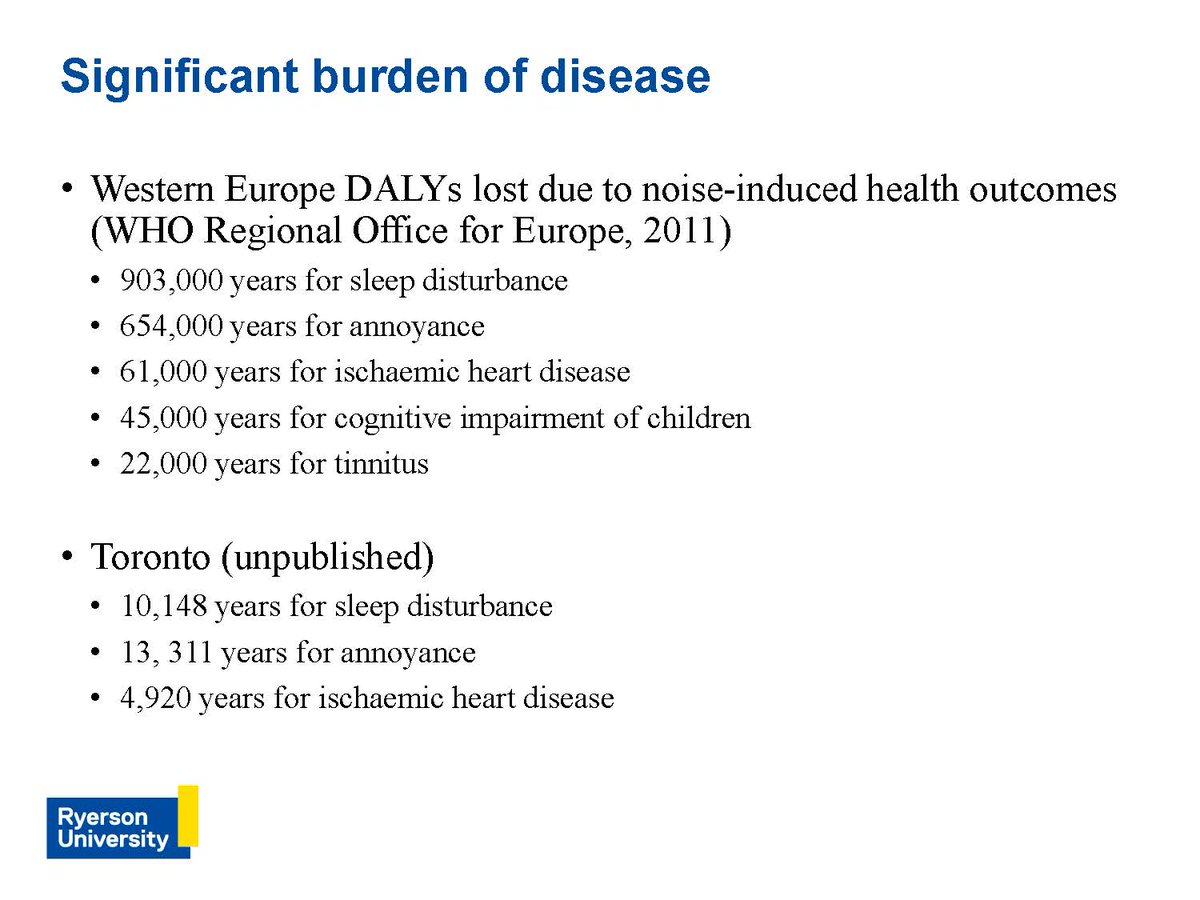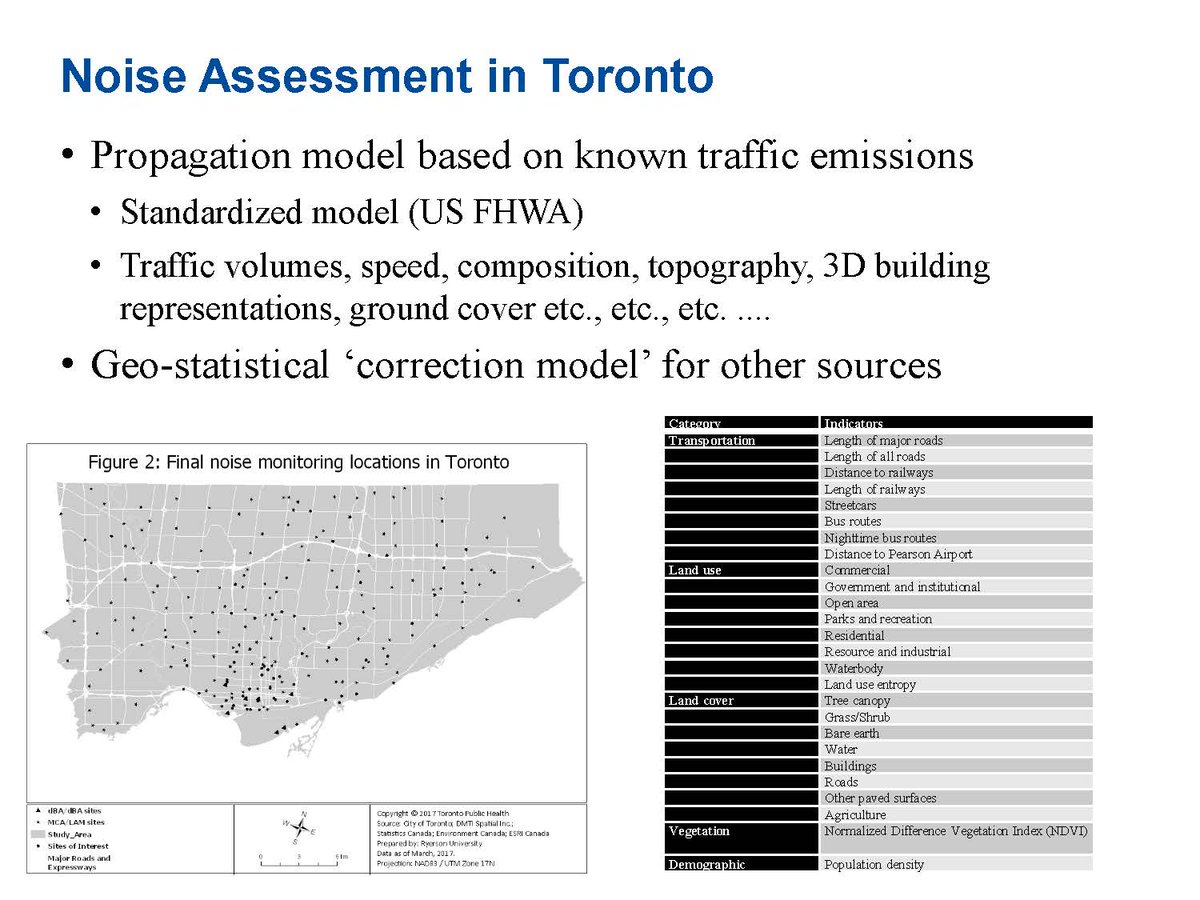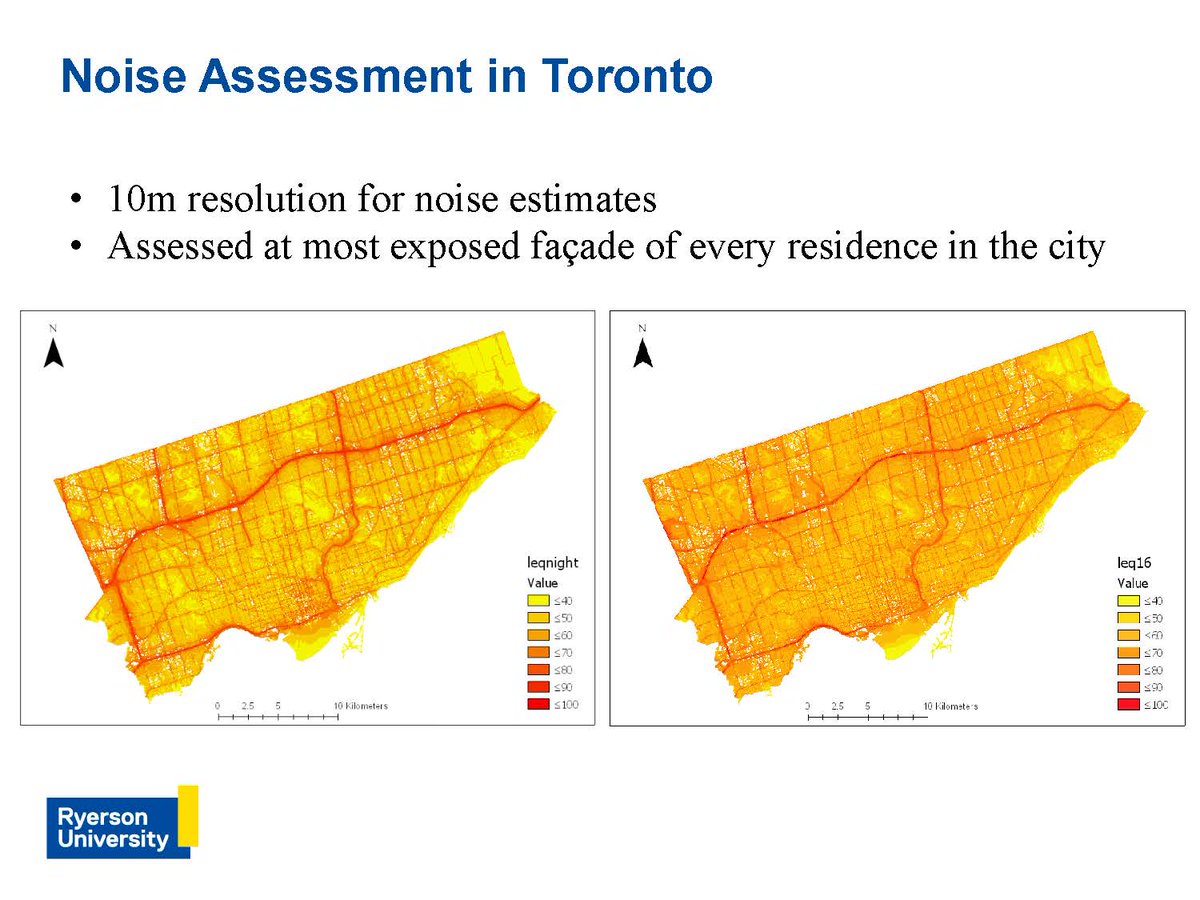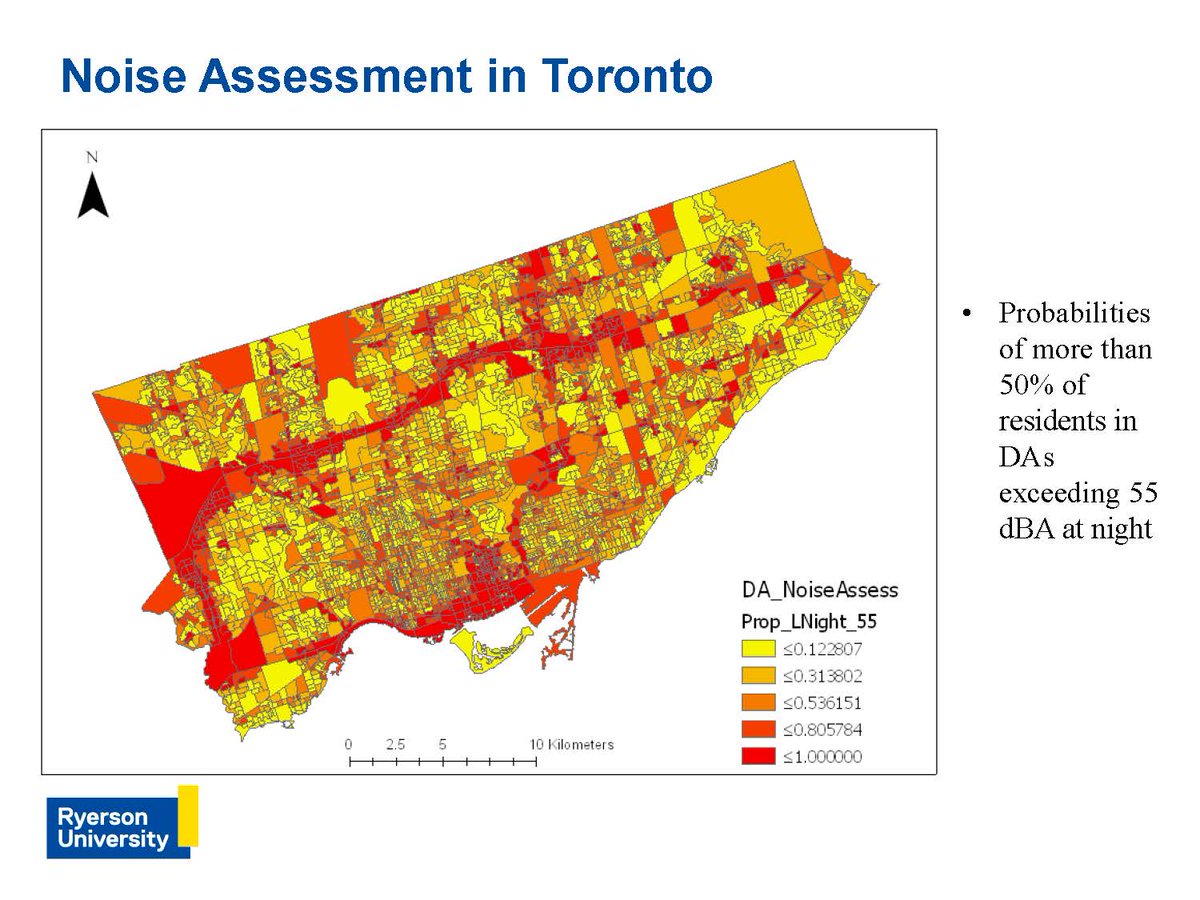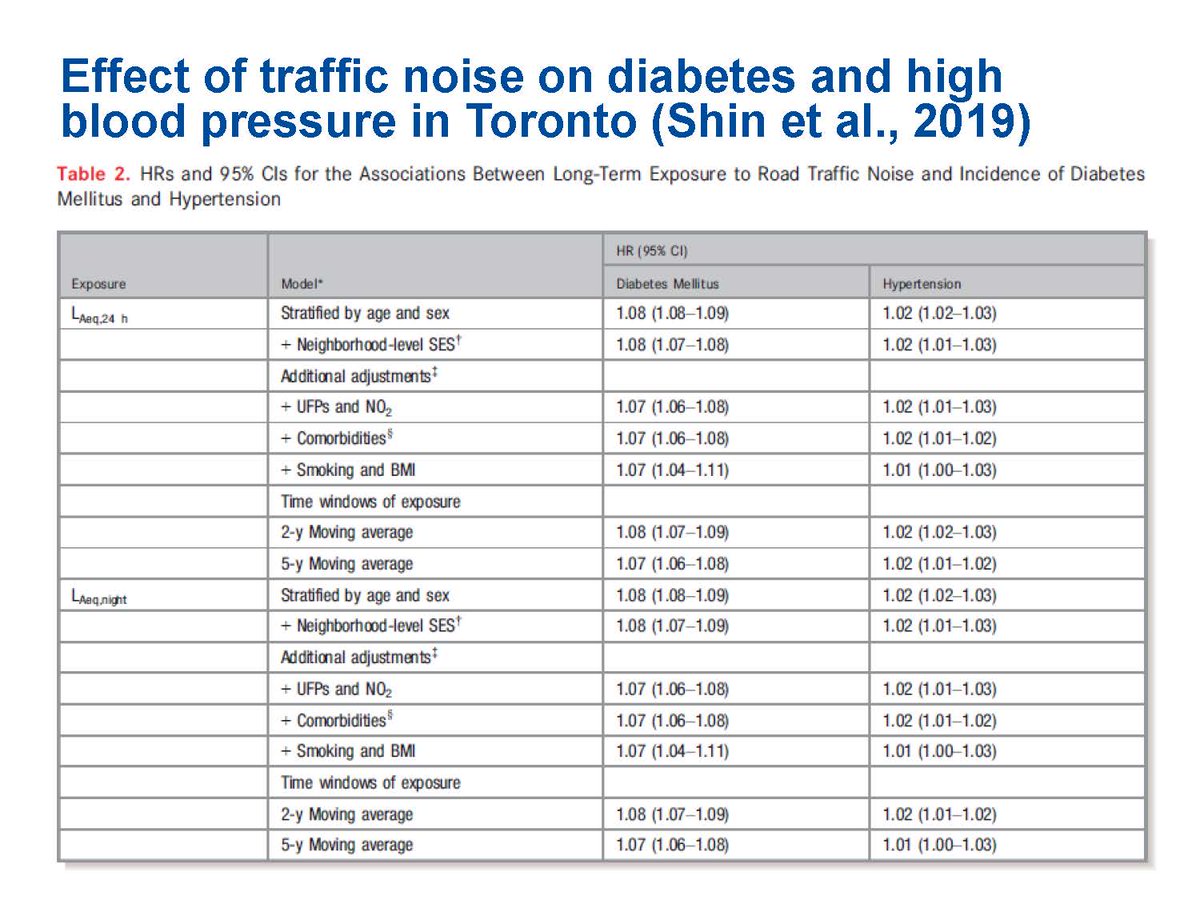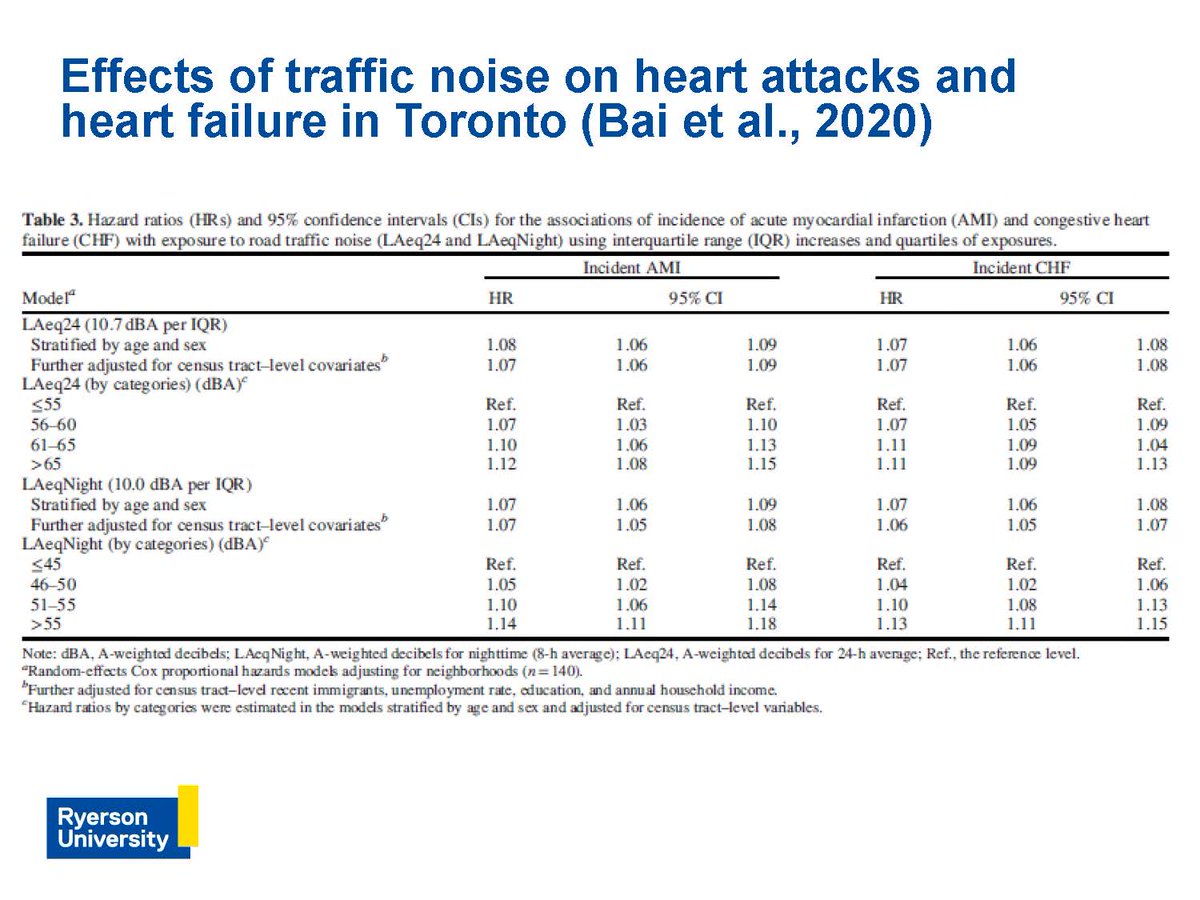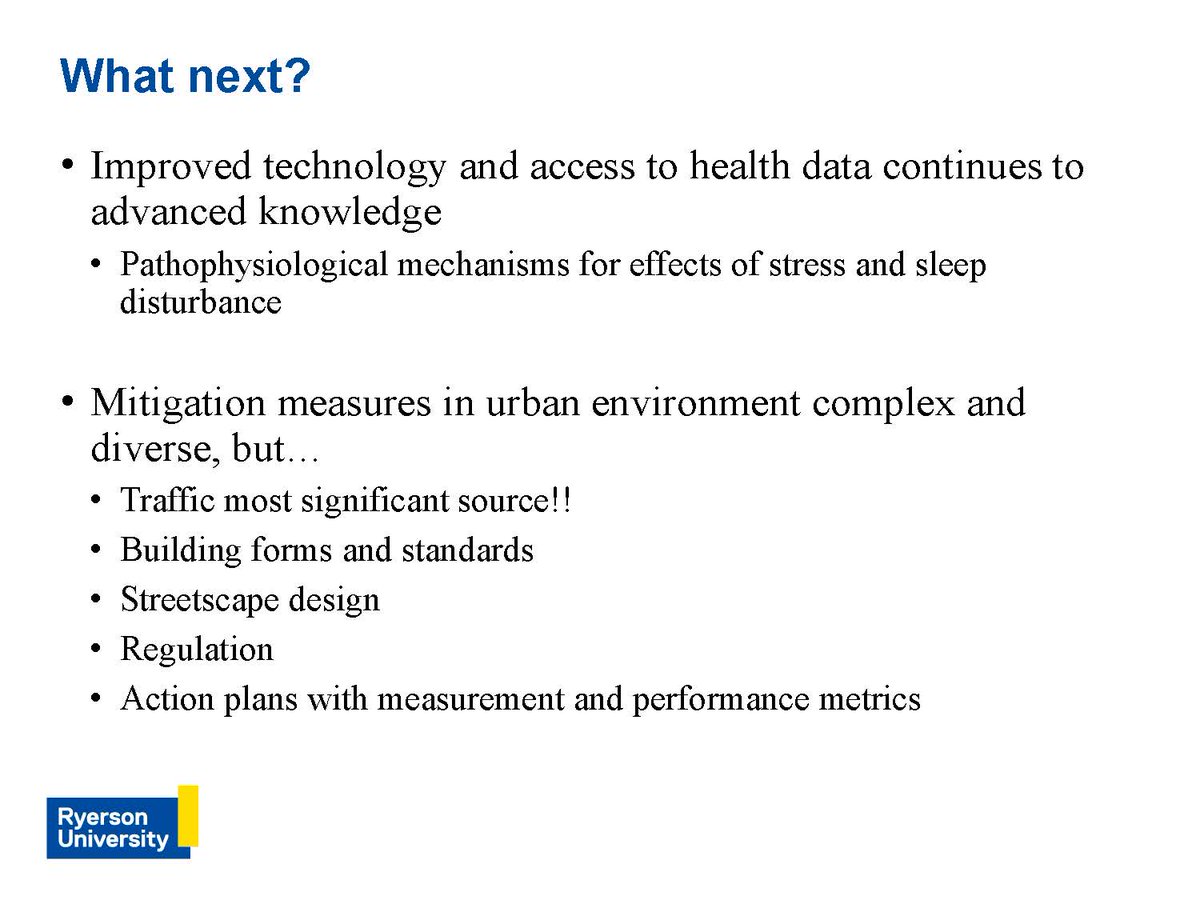Getting started in 10 minutes, a conversation w/ @Torsalias about road traffic noise and how it affects our health. Want to join in? Here& #39;s the link to register: https://www.ryerson.ca/city-building/events/2021/04/health-impacts-road-traffic-noise/">https://www.ryerson.ca/city-buil...
Environmental noise in urban environments and how it& #39;s affecting us is now getting more attention. @Torsalias has worked on multiple research projects and muni assessments to date.
There& #39;s a diff. btw noise and sound, explains @Torsalias. Noise is unwanted sound; transportation sources are often the most ubiquitous sources. 2nd pic shows decibel levels experienced in TO. Health effects begin around 50 decibels.
This is the general pathway developed to represent the effects of noise disturbance on health, direct and indirect #researchinfocus
In Europe, the health impacts of noise have been assessed for a # of years. Using the same methodology, we& #39;re developing similar metrics for TO
"We can predict with very high precision how a sound wave is defined and how it propagates throughout the environment," says @Torsalias. This is important because diff. noise sources have diff. health effects.
Around 60% of all noise variability in TO can be explained by road traffic, i.e. it& #39;s a dominant source of noise in the city. 93% of people experience higher than WHO nighttime noise guideline. #publichealth
There& #39;s an equity and environmental justice component to this research. Lowest income quintiles were 11x more likely to have 50% of residents exposed to high levels of noise. #researchinfocus
So what are the health impacts of prolonged exposure to road traffic noise? Still being investigated, but we know there is an 8% increase in risk of heart failure for every 10-decibel increase above 55 decibels. Results are consistent w/ similar other studies.
Continuing study is advancing understanding of relationship btw urban noise & physiological effects; it& #39;s complicated in an urban env& #39;t, but based on what we know, traffic calming and noise mitigation *will* have a positive impact on health. Should focus on vulnerable areas 1st.
We can& #39;t necc. assume that a larger city produces greater levels of traffic noise across areas; urban design plays a huge part. Similarly, it& #39;s not necc. an urban/suburban issue says @Torsalias
What can we do to help reduce harmful noise? @torsalias: in terms of prolonged environmental noise, we need action plans and metrics that target specific rate reductions, esp. among vulnerable populations. "But if everyone just drove the speed limit that would be a good start."
. @billjee asks @Torsalias a question: how would vehicle electrification affect this issue? A: there would be some reduction, esp. where vehicle speeds are lower. Tire noise at higher speeds would still contribute significant noise levels though. Needs more study!
City of Edmonton is the only city in Canada that has set up noise cameras, and sends drivers that create excessive noise a ticket in the mail. It can be done.
Many thanks to @Torsalias & our co-moderator Roderick Zhang for a fascinating talk. We learned that while there is an established relationship between road traffic noise and health, the science is complex! We& #39;ll have this recording up soon. Recc. for @TO_Transport

 Read on Twitter
Read on Twitter